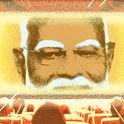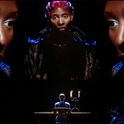I met the author of this book five years ago, at a private showing of Steven Spielberg's Schindler's List. Janina and her brother Joseph had been invited because an enterprising researcher had discovered that they had survived the final clearing of the Cracow ghetto in March 1943. A scene from the film showed Jews evading death by scrambling through a manhole into the city's sewers. Janina, then aged 12, and Joseph, 19, were among them. Fifty years later, I sat beside them as, dry-eyed, they watched that moment re-enacted on screen.
Moved by the film, I was far more moved by these two gentle, civilised people, now in their 60s, and by their long-ago courage and enterprise. Five years later Janina called to say that she had written a book and asked if I had time to read it.
Too many people are convinced that "everyone has a book in them" and too many of them try to write it. A few paragraphs are usually enough to demonstrate how wrong they are. Janina Fischler-Martinho is the exception that proves the rule. She did indeed have a book in her-this incomparable account of her Jewish childhood in Poland.
It is tempting to think that we do not need any more Holocaust stories; that they have become banal. In fact, it is the ordinariness of most of Janina's story which gives it its appeal. She liked to watch while her grandmother cooked. She liked to listen to her aunts gossiping. So does any little girl. But this one risked death every time she went beyond her own front door. Like the haunting child in a red coat in Spielberg's film, Janina personifies all the little girls silenced by racial or religious fanaticism; Jew or Palestinian, Bosnian or Serb, Iranian or Kurd.
Her life began as the adored only daughter of a close-knit family. Her parents lived in modest comfort. Her mother was a talented dress-maker and the family's main breadwinner; her father a professional footballer whose career was cut short by ill-health. She cherishes his memory:
"Many years later, in the 1960s, in London, when my husband and I were buying our first home, a Polish solicitor was doing the conveyancing for us at his office in Chancery Lane. It turned out that he was a Jew from Cracow who had left the country in the late 1930s. Realising that I, too, was from Cracow and Jewish, he said, 'May I ask your maiden name?' 'Fischler,' I replied. 'Oh,' he said, 'When I was a lad there was a footballer in Cracow called Fischler. Never missed a match when he was playing. A fine footballer... any relation of yours?' My whole being flooded with joy. I replied, 'Yes, he was my father.'"
Janina grew up among aunts, uncles, grandparents and cousins, whose secure and productive lives were abruptly shattered when the city's Jewish population was herded into the Cracow ghetto. She and her parents and brother went from a comfortable flat to a windowless, airless, basement room shared with her grandmother and an aunt.
Yet life in the cellar was preferable to what happened next. Her parents and most of her relatives were forced on to the cattle trucks which ended in the concentration camps. The two resourceful siblings managed to escape the transport. For months they believed that the rest of the family were hard at work somewhere and they would soon be reunited. The truth dawned only gradually, as no one left behind received letters, not even a postcard. "The dead do not write letters." Janina and her brother call the loss of their parents the Big Wound.
"These were just people who had lived, or who had had, at least, a taste of life, however bitter, however sweet... It is night-time. They march in rows of five. They have the meagre, shadowy substance of phantoms... The Cracow Jews went to their death in rows of five."
After the final clearing of the ghetto and the brother and sister's escape down the sewer, they walked for miles through its foetid tunnels, eventually emerging into the Polish countryside. There Joseph and Janina parted, believing that, separately, they stood a better chance. For the next two years neither knew what had happened to the other. The book's title, Have You Seen My Little Sister?, is the question her brother asked everyone he met.
Janina thinks she may be the youngest girl to have survived on her own for so long. She worked for peasant farmers, some astonishingly kind, some bestially cruel, sleeping in haylofts or pigsties, always moving on after a few months for fear of betrayal. Hungry, filthy, lice-ridden, terrified but also determined, resourceful and blessed with "Aryan" features, she lived. By some miracle Joseph also survived-in a concentration camp until liberation. With the help of the Red Cross information network the two were reunited. With that triumphant moment, the story ends. The passport-sized photograph on the back cover tells the rest. Janina holds her grandson Daniel in her arms. The family goes on.
Janina Fischler-Martinho is quite without self-pity, let alone anger or hatred; her restraint is infinitely moving. She is blessed with perfect recall. She writes with the innocent voice of a child struggling to make sense of a demented world, to think the best of people, clinging to the hope of a happy future. She evokes the patterns of family life in minute detail, a reminder of the stability, order and decorum we have lost.
Have you seen my little sister?
Janina Fischler-Martinho
Valentine Mitchell 1998, ?14.50











